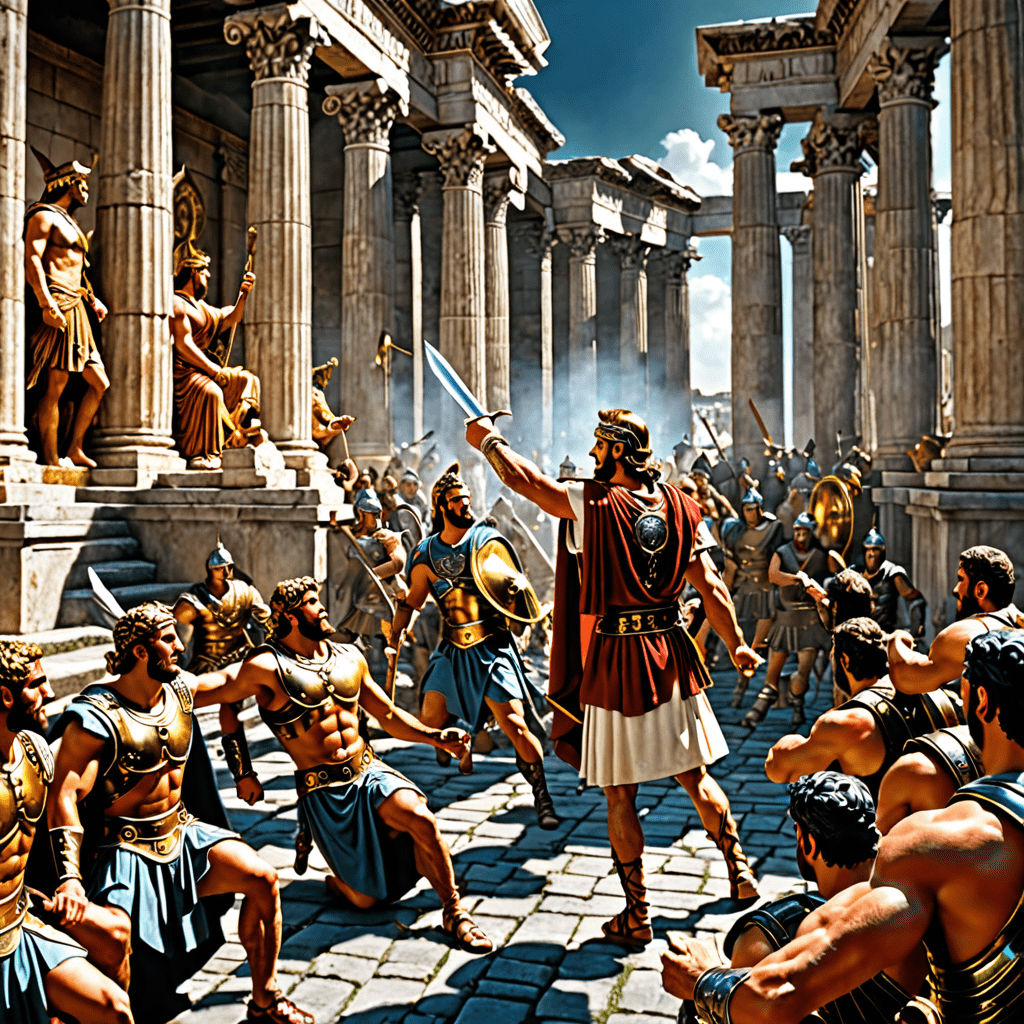The Role of Strategy and Tactics in Roman Mythological Stories
Introduction to Strategy and Tactics in Roman Mythology
Roman mythology is rich in tales of epic battles, cunning gods, and heroic warriors. What many overlook is the crucial role that strategy and tactics played in shaping the outcomes of these stories. In Roman mythological stories, strategic thinking and clever tactics often determined the fates of characters and civilizations alike.
Examples of Strategy and Tactics in Roman Mythological Stories
In the myth of the Trojan War, we see the ingenious tactics of the Greek hero Odysseus with the iconic Trojan horse strategy. Similarly, in the Aeneid, Aeneas employs strategic decision-making to ensure the survival and future glory of the Trojan refugees. These mythological narratives underscore the importance of foresight, planning, and strategic execution.
The Significance of Strategy in Mythological Heroes
Heroes like Hercules and Perseus are celebrated not just for their physical prowess but also for their strategic acumen. From outsmarting powerful adversaries to navigating treacherous challenges, these heroes exemplify how intelligence and cunning are as vital as strength in achieving victory in Roman myths.
Lessons Learned from Strategy and Tactics in Roman Myths
By delving into the narratives of Roman mythological stories, we uncover timeless lessons about strategy and tactics. These tales teach us the importance of adaptability, resourcefulness, and meticulous planning in overcoming obstacles and achieving our goals. The wisdom distilled from these ancient myths continues to resonate in our modern understanding of strategic thinking.
FAQ: The Role of Strategy and Tactics in Roman Mythological Stories
What is the significance of strategy and tactics in Roman mythological stories?
Strategy and tactics play a crucial role in Roman mythological stories as they often depict gods, goddesses, and heroes using clever plans and military maneuvers to achieve victory, overcome obstacles, or outsmart adversaries.
How do strategy and tactics contribute to the development of characters in Roman myths?
In Roman mythological stories, the use of strategy and tactics allows characters to showcase their intelligence, cunning, and resourcefulness. It adds depth to their personalities and highlights their ability to think critically and solve complex problems.
Can you provide examples of strategy and tactics in Roman mythological stories?
Sure! Examples include Athena aiding Odysseus with her strategic counsel in “The Odyssey,” Aeneas utilizing deception and military tactics in “The Aeneid,” and Mars, the god of war, guiding Romulus in founding Rome with strategic planning and warfare.





